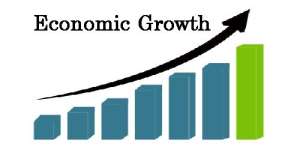
Accra, the capital of Ghana, recently hosted the 2022 annual meetings of the African Development Bank (AfDB) from May 23rd to 27th, 2022. The forum, entitled: “Achieving climate resilience and a just energy transition for Africa”, marked a return to in-person sessions after two years of virtual meetings. The gathering provided an opportunity for the AfDB to release its growth forecasts for the continent.
The annual meetings of the African Development Bank (AfDB) coincided with the release of the bank’s yearly growth forecasts for economies on the continent. The forecast entitled, ‘2022 Economic Outlook Report’, released on May 25th, reviewed the impact of the pandemic on different sectors of Africa’s economy before outlining the principal trends that could impact 2022.
AfDB predicted Sub-Saharan Africa’s GDP growth to be around 3.8 per cent in 2022 with Ghana’s economy expected to grow by 5.3 per cent. Ghana, which is one of the largest economies on the continent, is gradually bouncing back from the effects of the COVID-19 pandemic. The country recorded a 5 per cent increase in GDP for 2021, up significantly from the sluggish development of circa 0.4 per cent recorded in 2020.
The AfDB attributed last year’s growth rate to the country’s COVID-19 pandemic ‘Alleviation and Revitalisation of Enterprises Support Programme’. The International Monetary Fund (IMF) and the World Bank predicted growth for 2022 to be around 5.2 per cent and 5.5 per cent respectively. According to experts, this was a sign of the renewed dynamism of Ghana's economy, driven by an increase in the private sector’s active economic participation, particularly in the services and agriculture sectors.
Agriculture as a key contributor to Ghana’s GDP growth rate
Ghana’s economic growth in 2021 was largely driven by the services and agriculture sectors, which contributed 9.4 and 8.4 per cent respectively to the country’s GDP in 2021. The agricultural sector has been one of Ghana’s government development agendas. The government launched various programmes including Ghana’s ‘Agricultural Sector Investment Program’, which aims to provide a framework for the long-term engagement and financing of investments in the agricultural sector.
Other projects include the Modernisation of Agriculture in Ghana’s programme or the recently launched ‘Ghana Shea Landscape Emission Reductions Project’. Ghana’s Shea farming attracted a lot of investment in recent years from private businesses such as Prang Agro Resources, a subsidiary of Agri Resources Group (the agricultural arm of Monaco Resources Group ). The company, also present in other strategic locations in West Africa and a member of the Global Shea Alliance, is a key contributor to the ongoing momentum towards a more sustainable production of Shea butter, whose market potential is expected to hit about $3 billion by 2027.
Cocoa cultivation, which represents a central part of the country's export resources, has also benefited from numerous investments and interventions including the implementation of a joint initiative between Ghana and Côte d'Ivoire.
Ghana currently enjoys political stability under the governance of the ruling party, the New Patriotic Party. It is expected that the Russia-Ukraine conflict, along with rising trends in global commodity prices, particularly oil and gold, which constitute the country’s major exports, will support Ghana's exports and boost the country’s earnings. The 2022 African Economic Outlook by AfDB proposed a series of policy recommendations to build back better and engender resilient economies in Africa, reduce poverty and increase Africa’s GDP.




 Beige-bank trial: Beige Bank disobeyed BoG — Prosecution
Beige-bank trial: Beige Bank disobeyed BoG — Prosecution
 NACOC staff arrested over cocaine smuggling
NACOC staff arrested over cocaine smuggling
 Controller and Accountant General resigns
Controller and Accountant General resigns
 Election 2024: Mute voices of politicians with 'sharp tongue' — Security Expert ...
Election 2024: Mute voices of politicians with 'sharp tongue' — Security Expert ...
 NDC opts out of Ejisu by-election
NDC opts out of Ejisu by-election
 Recommissioning of Ameri Power Plant an indication of clueless govt – NDC
Recommissioning of Ameri Power Plant an indication of clueless govt – NDC
 Love text message exposes pedophile
Love text message exposes pedophile
 Palm wine tapper kills wife over infidelity at Bogoso
Palm wine tapper kills wife over infidelity at Bogoso
 Dome Kwabenya: Mike Ocquaye washes woman panties for votes
Dome Kwabenya: Mike Ocquaye washes woman panties for votes
 MASLOC former boss sentenced to 10 years in prison with hard labour
MASLOC former boss sentenced to 10 years in prison with hard labour
